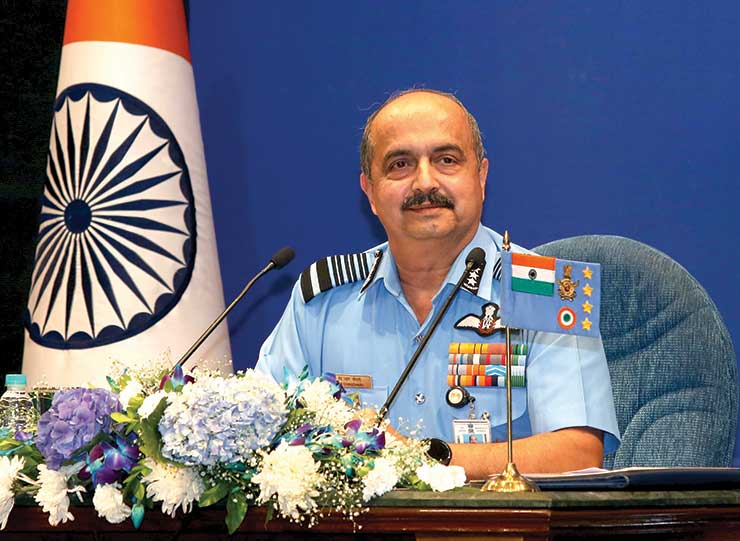
New Delhi: Chief of the Air Staff, Air Chief Marshal V R Chaudhari November 4 called upon the Aircraft and System Testing Establishment (ASTE) to increase its outreach to capitalise on the unprecedented growth in the Indian aerospace ecosystem. He also advocated the need to use new technologies like Artificial Intelligence (AI), and big data analytics in flight training and testing methodology.
“ASTE has served as a vital link across the entire spectrum of design, development, testing, evaluation, operationalisation and training with regards to war-waging equipment and personnel. The time is right now to increase your outreach to seamlessly integrate with the industry, certified (flight testing) community and end users to make it an all stakeholders approach,” he said.
The Air Chief Marshal was speaking at the launch of a two-day seminar on the theme ‘Lessons from the Past: Opportunities for the Future’, which was organised to mark the golden jubilee of ASTE. He said the ASTE has a unique distinction of collaborating with the Indian defence industry and participating in the design and development activity by supporting research and development efforts of defence labs.
The IAF chief called upon ASTE and Air Force Test Pilot School (AFTPS) to tap the opportunity arising out of the growing aerospace industry in the country. “The Indian aerospace ecosystem is witnessing unprecedented growth towards becoming self-reliant. Impetus to domestic manufacturing and enhancing public private partnerships has presented a multitude of opportunities for our flight testing community to engage proactively and contribute effectively to meet the national objectives,” the IAF chief said.
Stating that flight testing is a unique and specialised field, the Air Chief Marshal said it was important to share best practices and ethics. “Institutions across the globe invest heavily in training human resources, building support infrastructure, and creating safe and conducive ecosystems for efficient flight test activity. Therefore, transactional relationships and peer interactions assume significant importance in this regard.”
He called upon the participants to extract the best possible knowledge during the two-day seminar. “We must learn the right lessons from the past, understand contemporary challenges, and define our testing philosophy and methodology to maximise safety,” he noted.
“Air Force Pilot Training School has emerged as a centre of excellence for imparting high-quality training and producing a world-class test group, capable of facing all challenges associated with flight testing,” he pointed out.









